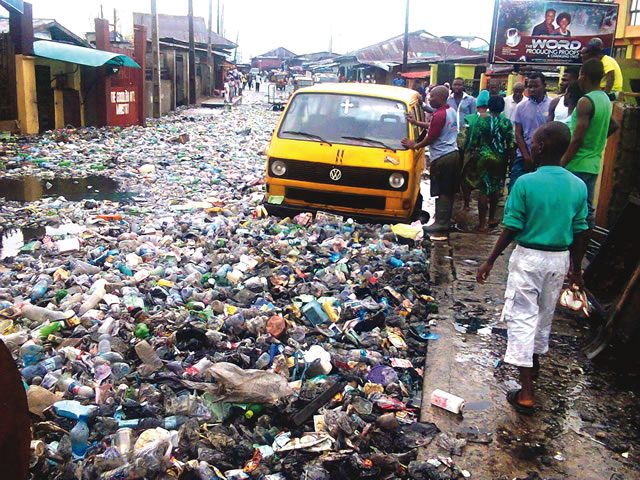A waste management expert, Dr Abiola Bashorun, has urged governments at all levels to be more active in tackling waste management problems in the country.
Bashorun, speaking in Akure, the Ondo State capital, on Saturday, suggested that involving the community and enforcing government policies, along with proper waste management by all parties, would greatly help solve the country's waste problems.
She pointed out that high levels of waste are created because of population growth, building infrastructure, and other modern activities in urban areas, which sometimes disrupt natural water systems.
She explained, "Fast-growing cities like Dubai, Lagos, and similar places that were built in areas once thought to be uninhabitable, are examples of urban development ideas from the 20th century. These ideas often result in infrastructure that blocks natural water absorption systems, changing the original landscape's water dynamics.
"The situation is made worse by the rapid population growth in these cities. The influx of people not only increases the need for liveable space, leading to more urban expansion, but also raises the amount of waste produced.
"This means more landfills need to be created and other waste disposal methods need to be used, potentially making the disruption of natural water systems worse. As a result, these cities struggle with significant drainage problems. This is particularly important for major global cities like Dubai and Lagos, which are facing more frequent and heavy rainfall.
Bashorun, who is the CEO of the ZL Global Alliance Limited, stated that without effective and sustainable urban planning and waste management strategies, cities will continue to struggle with the complicated issue of water management in changing climate conditions.
"To solve these issues, we recommend getting the community involved and enforcing government policies, along with good waste management practices. Getting the community involved in water management and enforcing good policies are crucial for successful urban water management.
"Also, it's important to use comprehensive strategies to find and reduce sources of pollution. This includes treating and recycling industrial wastewater, clearing drainage systems, and managing landfills effectively.
There have been efforts to stop improper waste disposal all across the country.
In January, the Lagos State Government sealed Oke-Afa market, Isolo, and Katangua market, Abule Egba, for violating waste disposal regulations and engaging in various unhygienic practices around the markets, which are serious environmental offenses.
The government did this to address growing environmental health concerns.



